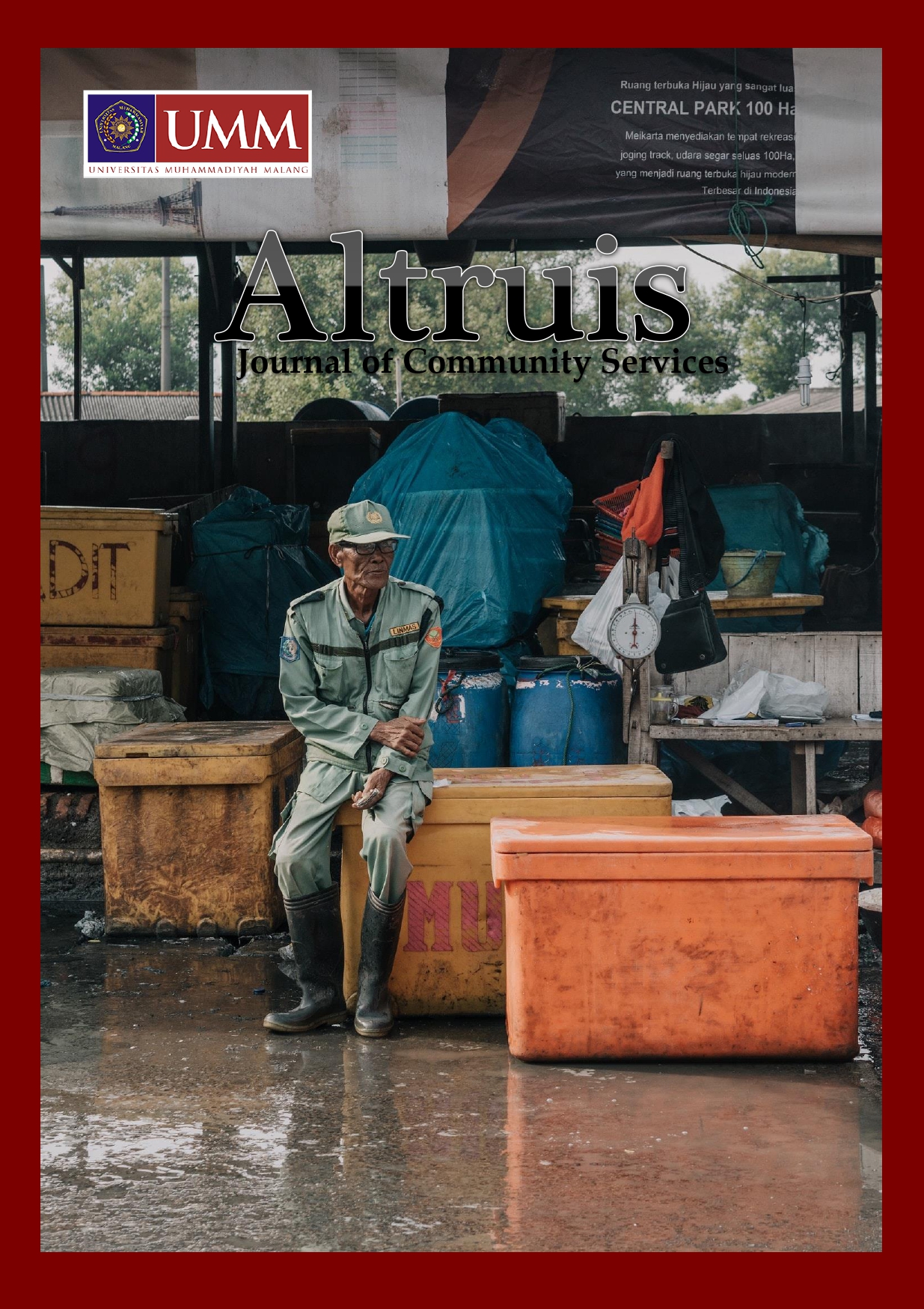Family Strength Model dalam Upaya Meningkatkan Ketangguhan Keluarga di Situasi Krisis
DOI:
https://doi.org/10.22219/altruis.v1i2.12283Keywords:
pandemi Covid-19, ketangguhan keluarga, psikoedukasi daringAbstract
Situasi krisis yang tidak terduga seperti adanya pandemi Covid-19 ini mempengaruhi berbagai aspek kehidupan manusia. Tidak dapat dipungkiri situasi ini dapat mengancam ketangguhan keluarga. Di sisi lain, keluarga merupakan sumber dukungan sosial yang sangat kuat untuk menghadapi situasi krisis. Psikoedukasi berbasis Family Strength Model dapat digunakan untuk mendorong kemampuan keluarga dalam menjaga ketangguhan keluarga di situasi krisis. Program psikoedukasi dilakukan dengan media daring sebagai bentuk yang dirasa efektif dan efisien dalam menjembatani imbauan untuk melaksanakan physical distancing.
Unpredictable crisis as Covid-19 pandemic situation may affect the way people live their life. It can be threatening factor for family strength. On the other hand, family is powerful resource of social support to face any difficulties during crisis. Psychoeducation based on Family Strength Model used to encourage family strength in this situation. Online psychoeducation program was effective and efficient method to do due to physical distancing restriction.
Downloads
References
Asay, S. M., & DeFrain, J. (2012). The International Family Strenghths Model. Marriage and Family, Future of Society (pp. 1-29). Madrid: World Congress of Families.
Bennett, P. (2005). Abnormal and Clinical Psychology: An Introductory Textbook. Berkshire: Mc-Graw Hill.
Center for Public Mental Health. (2020, April 24). Live Webex Session: Family Strengthening in Crisis Situation. Sleman, Yogyakarta, Indonesia.
DeFrain, J., & Asay, S. M. (2007). Strong Families Around The World: An Introduction to The Family Strengths Perspective. Marriage & Family Review, 41(1/2), 1-10.
Hakim, M. (2020). Profiling Risiko Covid-19 di Indonesia. Surakarta: Universitas Negeri Sebelas Maret.
Moreno-Peral, P., Conejo-Ceron, S., Rubio-Valera, M., Fernandez, A., Navas-Campana, D., & Rodriguez-Morejon, A. J. (2017). Effectiveness of psychological and/ or educational interventions in the prevention of anxiety. JAMA Psychiatry, 74(10)(1021), E1-E9. doi:10.1001/jamapsychiatry.2017.2509
Novotney, A. (2017, February -). American Psychological Association. Retrieved from American Psychological Association web site: https://www.apa.org/monitor/2017/02/online-therapy
Olson, D. H., DeFrain, J., & Skogrand, L. (2011). Marriages and Families: Intimacy, Diversity, and Strengths (7th edition). New York: McGraw-Hill.
Umberson, D., & Montez, J. (2011). Social Relationships and Health: A Flashpoint for Health Policy. Journal of Health Social Behavior, 54-56. doi:10.1177/0022146510383501
Downloads
Published
How to Cite
Issue
Section
License
Authors who publish in Altruis agree to the following terms:
- For all articles published in Altruis, copyright is retained by the authors. Authors give permission to the publisher to announce the work with conditions. When the manuscript is accepted for publication, the authors agree to automatic transfer of the publishing right to the publisher.
- Authors retain copyright and grant the journal right of first publication with the work simultaneously licensed under a Creative Commons Attribution-ShareAlike 4.0 International License that allows others to share the work with an acknowledgment of the work's authorship and initial publication in this journal.
- Authors are able to enter into separate, additional contractual arrangements for the non-exclusive distribution of the journal's published version of the work (e.g., post it to an institutional repository or publish it in a book), with an acknowledgment of its initial publication in this journal.
- Authors are permitted and encouraged to post their work online (e.g., in institutional repositories or on their website) prior to and during the submission process, as it can lead to productive exchanges, as well as earlier and greater citation of published work (See The Effect of Open Access).
This work is licensed under a Creative Commons Attribution-ShareAlike 4.0 International License.


